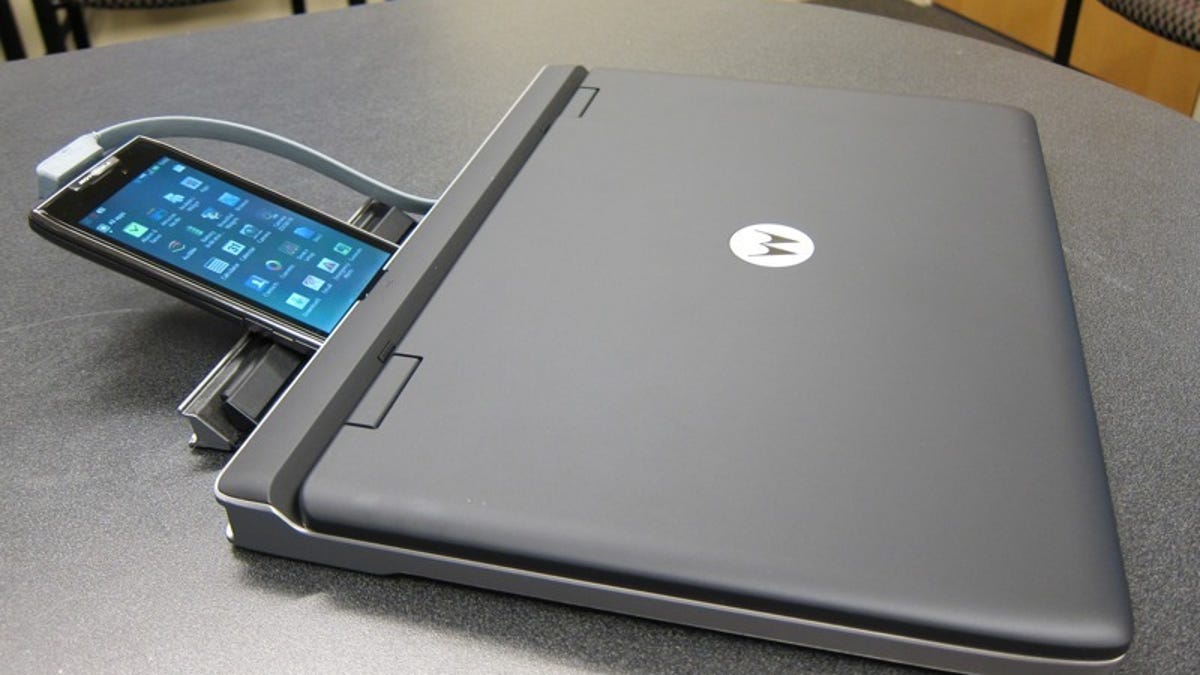Motorola confirms death of Webtop, laptop accessories
The company says adoption wasn't strong enough to justify additional resources.

Motorola Mobility's Webtop concept, which enabled its phones to act as the brains of a laptop or television entertainment hub, has quietly been killed off, the company confirmed to CNET today.
Webtop was software that allowed a Motorola smartphone, such as the
Unfortunately, the execution wasn't so smooth and sales were disappointing. Motorola, a unit of Google, said today that adoption wasn't strong enough to justify devoting more resources to the project. Webtop will no longer appear on phones, starting with the
In addition, Motorola said that Webtop would increasingly be redundant as the Android operating system began to include more desktoplike features.
Phonenews.com had last month reported that Motorola was killing off Webtop at Google's behest, citing unnamed sources.
The laptop dock was a key standout feature when Motorola unveiled its flagship Atrix 4G smartphone at the Consumer Electronics Show in 2011. It helped the company differentiate its products from the sea of other Android phones that debuted at the show.
The idea was a critical hit, and some, including CNET's Jason Hiner, believed it was a potential weapon Android could use to bridge the gap between the PC and mobile worlds.
When it was about to launch, Motorola and AT&T executives talked about the potential the device had to run in the office, and replace the need for a laptop for road warriors.
But its initial momentum was halted when AT&T and Motorola priced the phone and laptop dock for $500, an eyebrow-raising price tag that had many pausing and reconsidering the potential of such a device. While later devices continued to run with Webtop and their own laptop dock accessory, the excitement had largely disappeared.
In addition, the early version was slow and didn't offer the greatest experience, though Motorola would later improve the software. Prior to the takeover, Webtop was one of former CEO Sanjay Jha's favorite projects to talk about.
Motorola, now under CEO Dennis Woodside, instead will focus on a few core principles, including better battery life, a focus on LTE, and ensuring the latest updates to Android with its newer smartphones. The company has been aggressively cutting costs, and Webtop is just the latest casualty.
Full statement below:
Motorola's Webtop app helps users extend their smartphone experience to larger screens. While consumers around the world have adopted Webtop and the concept spurred a lot of innovation in the industry, the adoption has not been strong enough to justify continued resources being allocated to developing Webtop on future devices. We have also seen development of the Android operating system focus on the inclusion of more desktoplike features. Beginning with Photon Q and Droid Razr M/Droid Razr HD/Droid Razr Maxx HD, we will no longer be including Webtop on our products moving forward.

